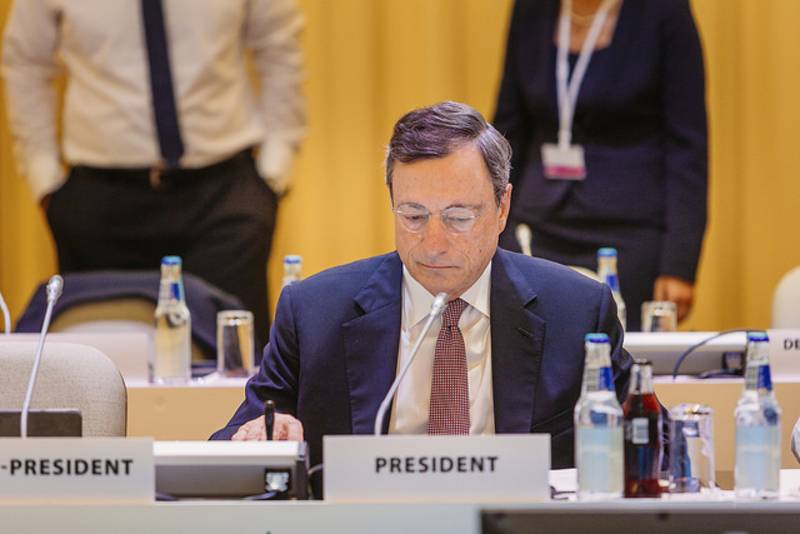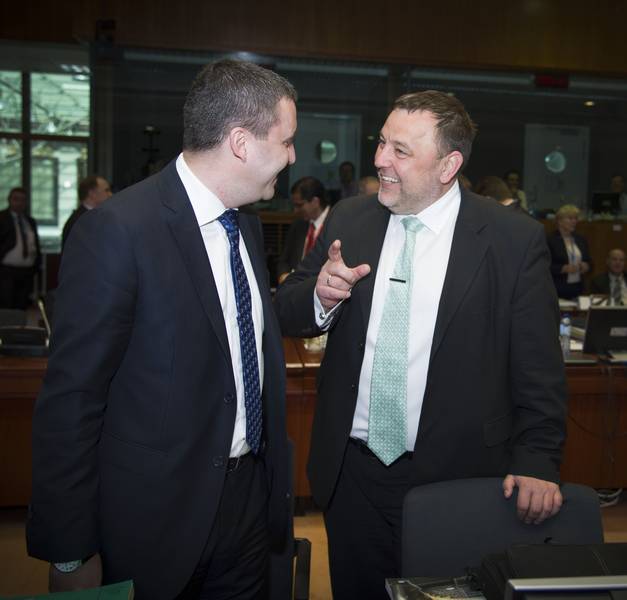The US is lagging behind in regulating the financial system
Adelina Marini, October 26, 2009
 A little after the reports for a beginning of the end of the recession, fears rose that because of the good economic outlooks for improvement of the global economy and that of the US, in particular, it is possible the plans for tightened regulation to be abandoned. Those plans were one of the first tasks in the agenda of president Barack Obama when he assumed office. The EU has started yet in the end of last year discussions about the regulation of the financial system and the G20 dealt with the matter several times.
A little after the reports for a beginning of the end of the recession, fears rose that because of the good economic outlooks for improvement of the global economy and that of the US, in particular, it is possible the plans for tightened regulation to be abandoned. Those plans were one of the first tasks in the agenda of president Barack Obama when he assumed office. The EU has started yet in the end of last year discussions about the regulation of the financial system and the G20 dealt with the matter several times.
So far the EU is performing slowly but steadily in tightening the supervision and control over the financial markets in the Union but in the US the process is seriously lagging behind. That is why the chairman of the Federal Reserve Ben Bernanke, who is pending an approval for a second term, called in Friday the Congress to speed up its work on the financial regulation. On Thursday a committee in the Congress approved creating a new regulator meant to protect consumers of financial products. But still many key questions remain in unclear, such as how much power the Fed or another regulator should have to oversee large, complex firms, the Washington post reports.
Ben Bernanke said in Boston that regulators and supervisors can really do a lot of work in  preventing future crises but it was necessary the Congress to take comprehensive actions to reform the financial system. More specifically, Mr. Bernanke called regulators to receive new powers to oversee financial companies whose size and complexity threaten the entire financial system. Beside this, the new regulators should have the power to close them down in an orderly way should they fail.
preventing future crises but it was necessary the Congress to take comprehensive actions to reform the financial system. More specifically, Mr. Bernanke called regulators to receive new powers to oversee financial companies whose size and complexity threaten the entire financial system. Beside this, the new regulators should have the power to close them down in an orderly way should they fail.
He also said that a new approach is needed toward the large complex firms to impose losses on shareholders and creditors of firms that fail, while shielding the overall economy. He added that any costs should be paid by the financial industry, not taxpayers as president Obama did in the first days of his presidency. He passed a rescue plan for over $700 bn to save the US financial system for which he was criticised.
More on the topic you could read here.
 Mario Draghi | © ECB
Mario Draghi | © ECB Vladislav Goranov, Sven Sester | © Council of the EU
Vladislav Goranov, Sven Sester | © Council of the EU Tsakalotos, Djisselbloem, Gramegna | © Council of the EU
Tsakalotos, Djisselbloem, Gramegna | © Council of the EU